|
Abstract
In any society the elderly are the most vulnerable and high risk groups in terms of health status. After a certain age, health problems begin to crop up leading to losing control over one’s body and mind even not recognizing own family owing to Alzheimer. It is then children began to see their parents as a burden. It is these parents who at times wander out of their homes or are thrown out. Some leave their old parents or grandparents in old-age homes and don’t even come to visit them. They are prone to several ailments with increase in their age. Some of these ailments may be chronic. But the physical and financial resources for treatment of such diseases are limited with regard to older persons. Keeping in view of this, the present study analyzes the chronic ailments by which the senior citizens (old age people) suffering and their source for treatment. For the present study random sampling method is applied for the selection of the sample. The study also discusses the old age population trends at global, national and state level. Introduction:
Ageing is a universal biological fact and a natural process. It begins from the day we are born, or perhaps even before. Senior citizens are more vulnerable because of deterioration of mature organisms. India now has the second largest aged population in the world. According to recent statistics (2001) related to elderly people in India, it was observed that 80% reside in rural areas. About 48.2% of elderly persons were women, out of whom 55% were widows. 40% of them live below poverty line and 70.3% of elderly are illiterate (2000). About 90% of the elderly were from the unorganized sector, i.e., they have no regular source of income. Old age is commonly associated with frequent illness and requires medical care and associated health services. In the population over 70years of age, more than 50% suffer from one or more chronic conditions. (Reddy PH 1996). Abstract
In India, as per as International Labour Organisation report (1999), there are more than 10,000 mines (of which 10%–60% may be illegal),employing about 1 million people including women and children. The extent of illegal mining is often linked to difficulties in obtaining permits. In these mines,there are serious problems as regards health and safety, the environment,hygiene and working conditions.Like most economic activities, mining has positive and negative aspects. It is closely linked to economic development, particularly in the rural sector in many developing countries and helps to stem rural-urban migration,maintaining the link between people and the land. The social and economic complexity of mining and the fact there is nomodel on which to develop a sound theory or programme needs a research study. Hence, the study was conducted at Bharat Gold Mines Limited (BGML) at KGF. The present study tried to understand the health and safety conditions of the mining employees, In this paper researcher is going to present three case studies and discussing the intervention of social workers. Key words: Health and safety, family background, gold mining, intervention of social workers. The Rights of Persons with Disabilities Bill,2014, is under review. In the report on the Bill ,Union Minister Maneka Gandhi is reported to have made the following observations: There is no difference between mental illness and mental disability in the bill. For instance, how can a person with Schizophrenia be given a job? What a jaundiced view of a high profile Union Minister on mental illness? Schizophrenia is like any other disease and the patient can be rehabilitated well with quality therapy, counselling, family care and social support. Mental illness is a taboo even now, and the mentally ill are ostracised, humiliated,ill-treated, and denied their basic human rights.
Abstract
Abuse of alcohol has become a serious public health and socio economic problem in Indian villages. Treatment services are neither available nor affordable. Keeping this in mind TTK Hospital has developed a cost effective community approach of treatment with the involvement of the community. The organization has been conducting six camps each year for the past 25 years. Abstract
Advancement of medical sciences have influenced significantly on the lives of people, it broadened the scope for well being, improved the quality and expectancy of life. A large number of health problems and diseases are under control through the improvement of medical technology. Emergence of medical technology for human organ transplantation is one of the crucial steps in the journey of sustaining health, and life. Even the technology is advanced in regard with the organ transplantation but the non availability of the organs always constrained the process. Abstract
This paper describes the findings from a preliminary study conducted in five districts in Tamil Nadu, South India throughout 2009-2010. The objective was to determine the conditions necessary to conduct a health survey to examine socioeconomic factors, interrelatedness to health status and quality of life of children and mothers. Results suggest that social service organizations have the potential to improve the health status and quality of life of children and mothers in Tamil Nadu and a health survey is feasible. Implications and recommendations for conducting international preliminary studies are discussed in relation to the findings. Key words: international collaborative research, children & mothers, social work practice with communities, community development. Abstract
Disability has always been looked down upon by the society and the differently abled persons have not yet been included in the mainstream society in many countries in the world. The article analyses the various models of disability and advocates for the adoption of the social model of disability along with rights based advocacy and activism. India is far behind the developed nations in creating an inclusive society because of the continuing barriers at different levels despite laws and policy pronouncements. Abstract
The article traces the evolution of nursing as a globally recognized profession from an intuitive art in the homes. The historical development of nursing by Egyptians, Greeks, Romans, Chinese, Hindus, Christians, and Arabs is discussed. Nursing in the modern era, with its low and high points, and the contribution of Florence Nightingale as the turning point in the development and recognition of nursing are also examined in the article. The professional characteristics of nursing, the personal qualities needed for a professional nurse, code of ethics, and professional accountability are the other key components of the article. Abstract
The ageing scenario in India has transformed in the recent decades due to the observed demographic trends among the older population and rapid social change that has led to the decline in informal supports for older persons within the family, which may be adversely affecting their well-being. In this context, Living Arrangements (LAs) are identified as a basic determinant and an indicator of the care and nature of informal supports available to the older persons within the family, and therefore of their Quality of Life (QoL). In the current study, while understanding the family relations that are part of LAs of the older persons, the findings revealed who the hardest and easiest person to get along with them were, and that respondents’ perception about the level of interest shown by their family members towards their well-being varied according to their current LAs and seemed to impact their QoL and its related factors such as loneliness and adaptation to old age. Abstract
The article explains the concept of health, disease and illness. The WHO definition of health is very relevant, though there is some criticism that it is too broad, according to the author. The article explains the spectrum of health, determinants of health, health systems, and levels of health services. Evolution of hospital as a social institution and hospital as a social system are two major sections of the article. Dr. K. Prabakar CEO, Apollo Knowledge, Chennai TURNER SYNDROME - is a specific disorder that is caused biologically but has significant mental health components in the patient who suffers. While the impact can vary from one patient to another, it still has so many socio-cultural factors and complications. The author Vasu C Murthy, LCSW R is a treating clinician in New York area and has compiled this for the benefit of the patient/families. While education is the most significant factor in reducing the fears and concerns of the patient/families, education will also remove some misconception of the general public. Many clinicians may not be aware of the full impact of the disease unless they study, handle carefully the patient and encourage the patient/family to prepare for the future, well being and reduce the symptomotology.
The problems of the disabled have many facets. It is commonly accepted that the problems of the disabled are varied in nature and this makes differing attitudes at various levels in society. In a developing country like India with long years of economic and social backwardness they become much more complex and acute. It is in the fitness of things that with growing social awareness and with the desire to optimize the totality of human resource development of the nation, the position of the disabled and the philosophy and strategy to tackle the situation should increasingly receive greater attention in our society.
Introduction
Geriatric psychiatric disorders usually occur in the context of medical illness, disability, and psychosocial impoverishment. Preliminary evidence suggests that psychotherapy can reduce not only psychopathology but also physical complaints, pain, and disability and that it can improve compliance with medical regimens. Psychotherapy has been found effective in treatment of depression related to bereavement and caregiver burden. Introduction:-
Old Age and disabilities of old people has never been a problem for India where a value based Joint Family system is still prevailing in many parts. The Indian culture is respectfully supportive to the elders. In the background the abuse of elders has never been considered as a problem in India. It has always been thought as a western problem. However, the coping capacities of the younger and older family members are now being challenged. Introduction: The dynamics that we found in families are individual worth, communication, rules, and system that link the family with outside system. These dynamics are developed after birth and so changeable and correctable.
Research on resilience in families has shed light on family protective factors and family recovery factors that appear to play a critical role in promoting the family’s ability to maintain its established patterns of functioning after being challenged by risk factors and in fostering the family’s ability to recover or bounce back quickly from misfortune and family crisis. Definition of resilience: Resilience is the ability of a individual or a family to use its strengths in order to positively need life’s challenges. It involves the family’s ability to return to previous levels of functioning following a challenge or crises. ( Luthar et al 2000). Central Concepts in Family Resilience: Within the Family Resiliency framework ( Mccubbin et al 1993) resilience is viewed as involving two distinguishable but related family processes: (1) adjustment, which involves the influence of protective factors in facilitating the family’s ability ad efforts to maintain its integrity, functioning, and fulfill developmental tasks in the face of risk factors, and (2) adaptation, which involves the function of recovery factors in promoting the family’s ability to “bounce back” and adapt in family crisis situation. |
Categories
All
Social Work Learning Academy50,000 HR PROFESSIONALS ARE CONNECTED THROUGH OUR NIRATHANKA HR GROUPS.
YOU CAN ALSO JOIN AND PARTICIPATE IN OUR GROUP DISCUSSIONS. MHR LEARNING ACADEMYGet it on Google Play store
|
SITE MAP
SiteTRAININGJOB |
HR SERVICESOTHER SERVICESnIRATHANKA CITIZENS CONNECT |
NIRATHANKAPOSHOUR OTHER WEBSITESSubscribe |
MHR LEARNING ACADEMY
50,000 HR AND SOCIAL WORK PROFESSIONALS ARE CONNECTED THROUGH OUR NIRATHANKA HR GROUPS.
YOU CAN ALSO JOIN AND PARTICIPATE IN OUR GROUP DISCUSSIONS.
YOU CAN ALSO JOIN AND PARTICIPATE IN OUR GROUP DISCUSSIONS.
|
|

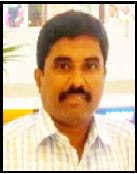


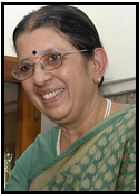
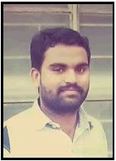
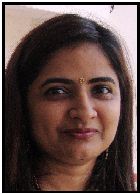
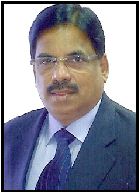
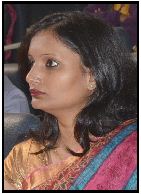
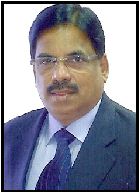
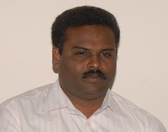





 RSS Feed
RSS Feed





